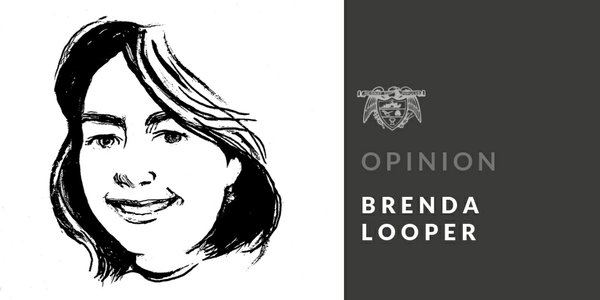
On Saturday, it will have been 20 years.
Twenty years since the Tuesday morning that I stood in the newsroom, watching with 10 or so other Democrat-Gazette colleagues as the newsroom televisions showed us a plane crashing into one of the World Trade Center's Twin Towers, and then another plane hitting the other.
At first it looked like a freak accident. The second plane showed that it was deliberate.
We would later learn of two other planes, one that crashed into the west side of the Pentagon, and another brought down in a field in Pennsylvania by passengers who decided to take on the hijackers.
Thousands of lives were lost that day, and millions of lives are still affected by it, and the wars in Iraq and Afghanistan that followed.
As a nation, we came together to support those who lost people, to renew a sense of immediacy in the fight against terrorism. But we also let conspiracy theories--beliefs that powerful people are manipulating events and people--sow seeds of doubt.
Still today we have people who believe the 9/11 attack was a false-flag operation--an act designed to look like it was undertaken by someone other than the responsible party--or that there were no planes used despite the documentary and eyewitness evidence.
Conspiracy theories have been around forever, but it seems, to me, anyway, that it wasn't until 9/11 that they gained so much impact, probably because the Internet was more available by then; by 2000, 52 percent of the U.S. was on the Internet, according to Pew Research, and by 2019, it was up to 90 percent.
The Internet changed the way conspiracy theories disseminated, so the more access people had, the faster they spread. With 9/11, it was mostly the left talking about conspiracies. When Barack Obama began his run for the presidency, it was the right. Joseph Uscinski, a political scientist at the University of Miami, told Maggie Koerth of FiveThirtyEight that he was frustrated by the tendency of partisans to build up conspiracy theories when their party isn't in power and then forget them once they have the power again.
But I would postulate that that changed once Donald Trump was elected, not least because he fed conspiracy theories whenever something didn't go his way. Once he lost the election, they went into overdrive, culminating in the Jan. 6 attack on the Capitol.
Is it any wonder so many of us were exhausted by his presidency?
Marta Marchlewska, a social and political psychologist who studies conspiracy theories at the Polish Academy of Sciences, spoke to Jillian Kramer for an article published online in National Geographic two days after the attack. She said that people use "cognitive shortcuts" (rules of thumb to help make decisions) to determine what they should believe, and when there's anxiety and disorder in their lives, they become more reliant on them. But that wasn't the only factor.
"Another psychological factor that can lead to belief in conspiracies is what experts call 'collective narcissism,' or a group's inflated belief in its own significance. Marchlewska's research suggests that collective narcissists are apt to look for imaginary enemies and adopt conspiracy explanations that blame them.
"This urge is particularly strong when narcissistic people fail, or members of their group fail. 'For some people, conspiracy beliefs are the best way to deal with the psychological threat posed by their failure,' Marchlewska says, adding that this phenomenon was likely at work as rioters stormed the Capitol."
Political scientist Emily Thorson of Syracuse University told Kramer it's hard to dissuade someone once they believe in something because of "belief echoes"--an "obsessive, emotional response to information that can linger even after we know it's false."
Which means that those of us committed to facts have a tough row to hoe.
The events of 9/11 were instigated by very real enemies, but people managed to make others the enemies because they imagined there had to be deeper reasons behind the attacks.
Some people firmly believe there were no shootings at Sandy Hook, Parkland, Aurora, etc., but instead "false flags" involving "crisis actors" who seem to show up at every mass shooting, all as the impetus to take away everyone's guns. Some will never believe that pizzagate isn't real, that Obama was born in the U.S., or that Trump lost the 2020 election.
Reality, it seems, is eluding a lot of people who would much rather believe the comforting lie. In some cases, it's harmless, but in others, such as the pandemic and Jan. 6 ... not so much.
"There is no doubt that conspiracy theories and misinformation have been used by powerful figures over the ages," Marchlewska told Kramer. "They serve as an extremely dangerous political weapon, helping manipulate the public to gain the power. First you search for imaginary enemies, then you prepare yourself for a fight. The final stage is usually tragic: You hurt innocent people."
That should give us pause. Sadly, as the last several years have taught us, it probably won't.
Assistant Editor Brenda Looper is editor of the Voices page. Read her blog at blooper0223.wordpress.com. Email her at [email protected]
"lasting" - Google News
September 08, 2021 at 03:34PM
https://ift.tt/3zVS7Bj
Lasting impact - Northwest Arkansas Democrat-Gazette
"lasting" - Google News
https://ift.tt/2tpNDpA
Shoes Man Tutorial
Pos News Update
Meme Update
Korean Entertainment News
Japan News Update
Bagikan Berita Ini














0 Response to "Lasting impact - Northwest Arkansas Democrat-Gazette"
Post a Comment